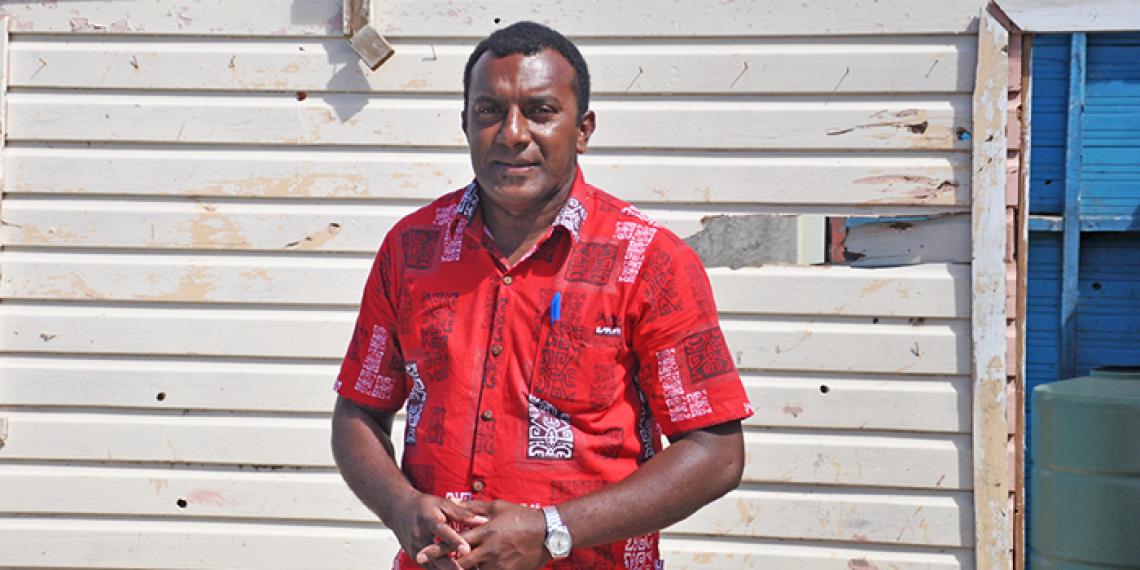You are here
Sairusi’s Story

A wheelbarrow for shelter
When Winston hit, it was a wheelbarrow that likely saved Sairusi’s life as he sheltered from the debris.
For Sairusi Baravi, head teacher of Malake School on Malake Island, the cyclone was like nothing he’d ever experienced. Six months on, he vividly remembers the winds hitting the island.
‘The cyclone hit around 4pm, and due to our isolation we had no warning as to its severity. Both the village and school were badly damaged within the first two hours by the strong winds, I’ll never forget the sounds of crying women and children.’
Sairusi was in his quarters on school grounds when the cyclone first struck, blowing away the walls and roof as he sat inside.
‘I ran from the house into an office, but as soon as I stepped inside the whole room was gone so I had to turn around again.’
By that time, Sairusi says branches and pieces of deadly corrugated iron were flying around him, forcing him to crawl for cover. That’s when he spotted an old wheelbarrow, which Sairusi believes saved his life that night.
‘I covered myself with the wheelbarrow and waited until the wind died down. I could feel chunks of tin smacking against the wheelbarrow every so often, and I was very scared.’
Once the winds settled down the next morning, Sairusi got the children together at the school so he could check for injuries.
Weeks after the cyclone hit, Sairusi could still see the fear in the children’s eyes when they came to school.
‘I remember a few days after the cyclone there was another windy day, and the children hid under their tables – despite me telling them it was just a normal wind. Some had hidden under floors and trees that night, so it had really affected them.’
A specialist Salvation Army psychotherapy team from New Zealand met with the children and teachers to give counselling, focusing on listening to the students and using organised sports and games to encourage them to talk about their ordeal.
Sairusi says the impact of this on the children was noticeable.
'It was a really big help, seeing them improve from their fearful stage to where they’re at now. We can see them being able to concentrate again, instead of just sitting in the classroom and staring out the window with worried looks on their faces.'